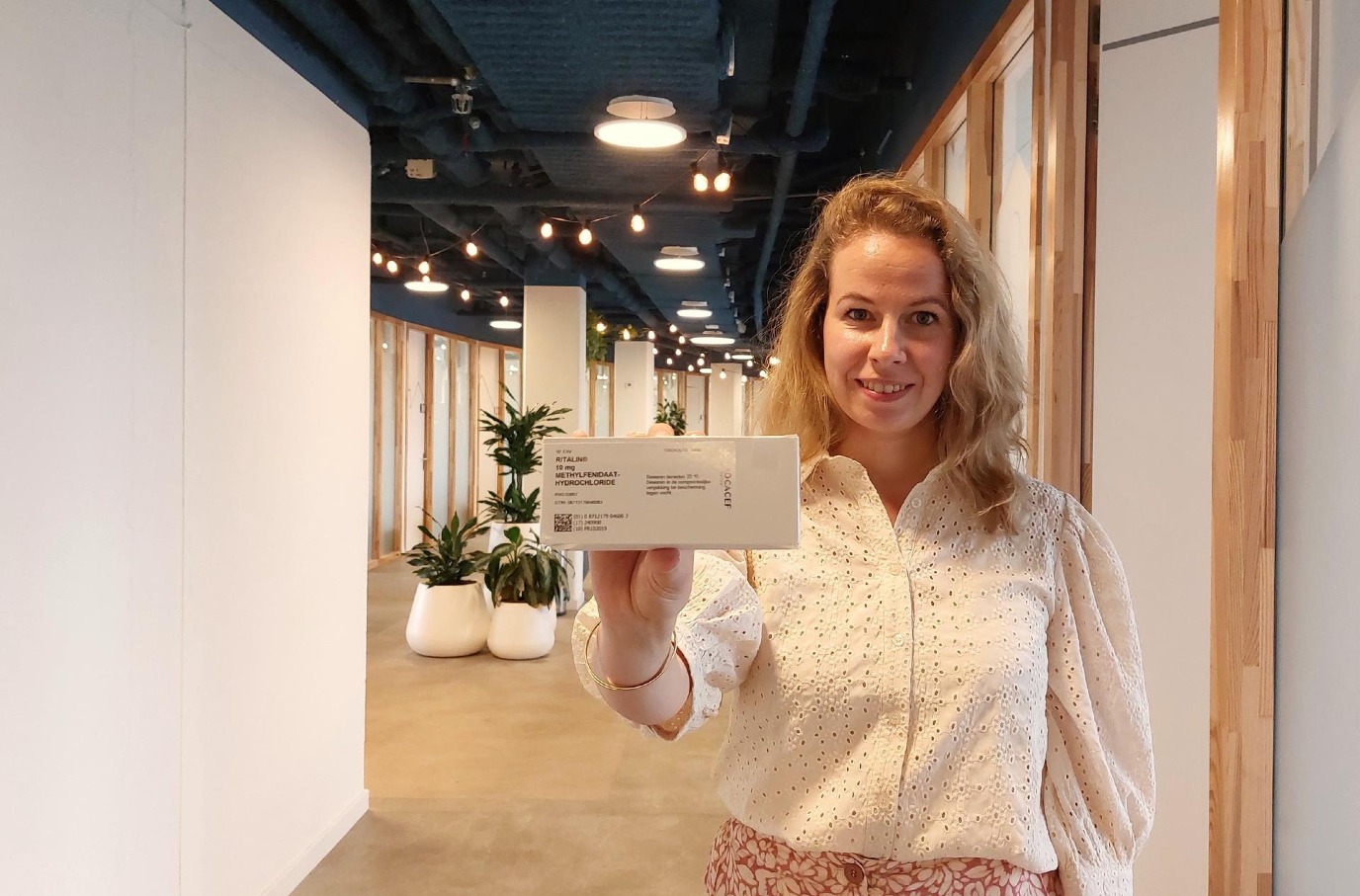Part of the children with ADHD can stop using Ritalin sooner
A part of children with ADHD could stop taking Ritalin after two years. This is the conclusion of Anne-Flore Matthijssen's PhD research. In collaboration with Accare, she studied Ritalin use in children and adolescents aged 8 to 18. Matthijssen also discovered that one in three GPs prescribe Ritalin under pressure from parents.
Ritalin, Concerta, Medikinet and Equasysm are different names for the stimulant drug methylphenidate, which is prescribed to children and adolescents with ADHD. It is a common developmental disorder characterised by attention problems, impulsivity and hyperactivity. In the short term, methylphenidate helps well to reduce hyperactivity and inattention, but the long-term effectiveness of the drug has not been well studied.
Since the beginning of this century, the use of Ritalin by children and teenagers has risen very sharply. This prompted Matthijssen to take a closer look at its use. ‘I wondered whether GPs and psychiatrists prescribe Ritalin adequately and responsibly,’ she says.
Also, the majority of children use Ritalin for more than two years.‘It is important to investigate to which extent children benefit from long-term use. Not only because there were already doubts about its long-term effectiveness from other research, but also because Ritalin can have side effects such as decreased appetite, difficulty falling asleep, headaches and nausea.’
Phasing out Ritalin
Matthijssen conducted research in a group of 94 children aged 8 to 18 who had been taking Ritalin for more than two years. In total, the study lasted seven weeks, with half of the children continuing to take Ritalin and the other half phasing out the drug in three weeks. The group that discontinued Ritalin then continued taking a placebo for another four weeks.
In the group of children who stopped taking Ritalin, Matthijssen did see more ADHD symptoms than in the group of children who continued taking the drug. ‘In that respect, it remains an effective treatment,’ she says.‘But in 60% of the children who stopped taking medication, the practitioner found that the child was generally no worse off than before. This indicates that the majority of children who have been taking Ritalin for more than two years could stop.’

More focus on stopping medication
‘Stopping medication should play a much bigger role in treatment,’ Matthijssen believes. Currently, information on stopping Ritalin in treatment guidelines is limited. ‘It would be good if practitioners thought about a stopping point at the beginning of treatment with Ritalin and also discussed it with parents and the child.’
GPs experience pressure from parents and schools
A survey conducted by Matthijssen among 907 GPs showed that almost all GPs sometimes refer children or teenagers to specialist care without finding it necessary themselves. One in three GPs also said they sometimes prescribed Ritalin under pressure from parents. One in five did so under pressure from schools. In addition, the majority of GPs felt that ADHD was diagnosed too easily and Ritalin was prescribed too easily.
Guidelines are not properly followed
In the Netherlands, both GPs and healthcare professionals in youth mental health institutions treat children and teenagers with ADHD.There are different guidelines for this. Matthijssen's research shows that care professionals do not always follow these guidelines properly. She noticed that the ADHD severity assessment was only carried out in about one percent of cases. That severity assessment helps determine whether someone needs Ritalin right away or whether parental training can be started first.
| Last modified: | 15 May 2024 3.30 p.m. |
More news
-
14 April 2025
12 Marie Sklodowska Curie Doctoral Networks for the University of Groningen
The University of Groningen has achieved very good results in the last round of Marie Sklodowska Curie Doctoral Networks.
-
05 March 2025
Women in Science
The UG celebrates International Women’s Day with a special photo series: Women in Science.
-
28 February 2025
Vici grants for two UG/UMCG scientists
The Dutch Research Council (NWO) has awarded Vici grants, worth up to €1.5 million each, to Merel Keijzer and Charalampos Tsoumpas This will enable the researchers to develop an innovative line of research and set up their own research group for...
